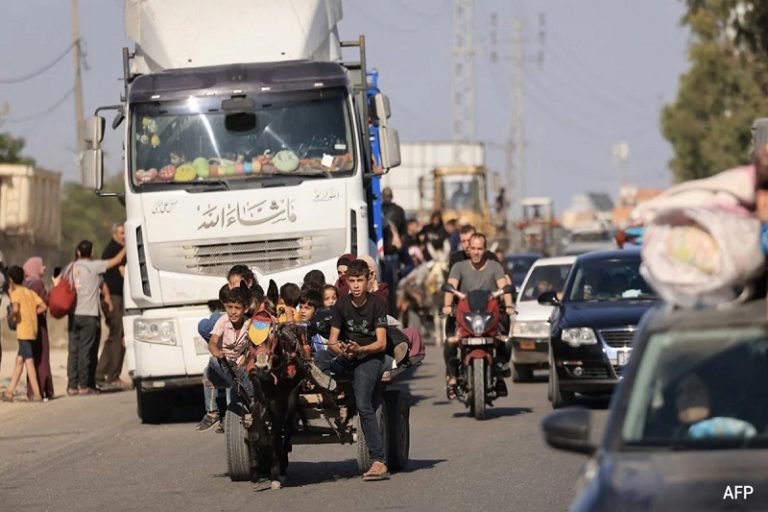

egypt's president rejects the large influx of gaza refugees and fears west bank displacement
Egypt’s President Abdel Fattah al-Sisi announced on Wednesday that he would not permit a large influx of refugees from Gaza, fearing it could set a precedent for the displacement of Palestinians from the West Bank into Jordan. He attributed this stance to Israeli air strikes on the Rafah crossing between Gaza and Egypt, hindering aid delivery to Gaza’s 2.4 million residents.
President Sisi expressed concern that a significant influx of Gazans into Egypt would risk replicating the displacement of Palestinians from the West Bank into Jordan. This, he argued, would undermine the establishment of a Palestinian state, as the land would remain but the people would be displaced.
The announcement came amid severe Israeli bombardment of Gaza in retaliation for a cross-border strike by Hamas, resulting in at least 1,400 casualties, primarily civilians. The humanitarian situation in Gaza, including shortages of essential resources like food, fuel, electricity, and water, has further deteriorated.
Egypt’s Rafah border crossing with Gaza is the sole entry point not controlled by Israel, leading to mounting pressure for humanitarian aid to pass through this route. President Sisi clarified that the crossing was not closed but faced challenges due to repeated Israeli bombings on the Palestinian side.
Egypt and Germany, through discussions with Chancellor Olaf Scholz, are working together to expedite humanitarian access to Gaza. They emphasized the risk of regional spillover due to the conflict, leading to a call for international intervention and a halt to the dangerous military escalation.
President Sisi and Chancellor Scholz issued warnings about potential regional spillovers. Scholz cautioned Hezbollah and Iran against intervening in the conflict, emphasizing Germany’s commitment to preventing a broader conflagration in the Middle East.
President Sisi reminded us that Egypt was the first Arab state to establish diplomatic relations with Israel in 1979 after the Camp David peace accords. He expressed concern that a major influx of Gazans into the Sinai Peninsula could risk turning it into a base for terrorist operations against Israel, potentially jeopardizing peace and security in the region.
The potential exodus of Gazans to Egypt has been described as a “second Nakba” by Palestinian President Mahmud Abbas, referring to the first Nakba in 1948, when hundreds of thousands of Palestinians were displaced during the birth of Israel.
Egypt has consistently refused to accept Israel’s responsibilities as an occupying force, including the safety of civilians. This aligns with Egypt’s stance that Israel should not be recognized as a legitimate state in the occupied territories.
In response to concerns that Sinai is a sparsely populated desert, President Sisi suggested that Gazans seek safety in Israel’s Negev Desert and be returned when Israel completes its operations against armed groups in Gaza.
South African President Cyril Ramaphosa defended his nation against claims of white discrimination made by tech magnate Elon Musk. After…
Hilton launched Signia by Hilton for its first appearance in Egypt and Africa through its hotel expansions. These hotels at…
UNICEF reported that, nearly 2900 people died of cholera across Eastern and Southern African countries while children suffer most greatly…
Enza, based in the United Arab Emirates, obtained $6.75 million in initial investment funding from Algebra Ventures and Quona Capital.…
US Secretary of State Marco Rubio ordered South African Ambassador Ebrahim Rasool to leave America by March 21 because he…
Early 2025 ends with IPL fever in India and cricket fans receive good news of an international schedule full of…
This website uses cookies.